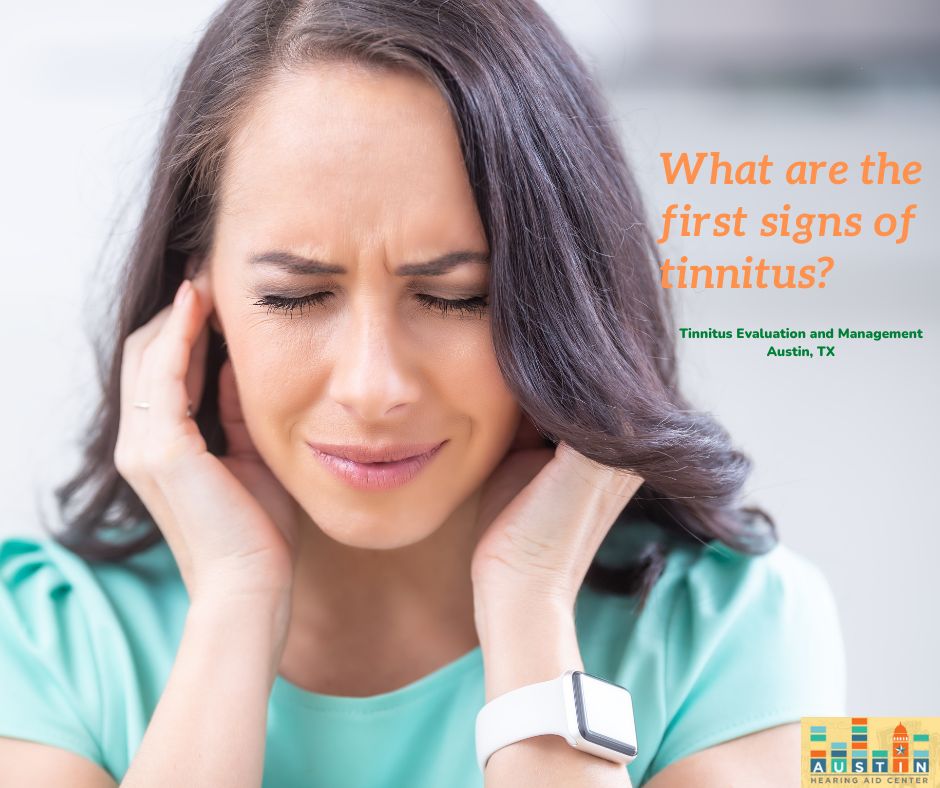Have your ears been ringing lately? Or do you hear persistent, disturbing noises that do not seem to be bothering anyone else in the room? It might be one of the early signs of tinnitus!
Before you get ahead of yourself and worry that you might be “hearing things,” you might want to consult with an audiologist as you may be experiencing the first signs of tinnitus.
What is tinnitus?
Tinnitus is a condition in which you hear ringing or other disturbances in one or both ears. The noises you hear don’t stem from outside sounds, and most people can’t hear them.
Tinnitus is actually a common medical issue. It affects 15% to 20% of the population and is most prevalent among older individuals.
What causes tinnitus?
Tinnitus is typically caused by an underlying issue, such as hearing loss, ear trauma, earwax impaction, or a circulatory system problem.
In most cases, tinnitus improves once the underlying cause is addressed. There are several approaches to tinnitus treatments, all of which are geared towards lessening or concealing the noise to make the distracting sounds less obvious.
Symptoms of tinnitus
The first few signs of tinnitus is hearing a disturbing noise that seems to stem from inside your head or ear. These sounds can manifest as:
- Ringing
- Buzzing
- Whooshing
- Pulsating
- Thumping
- Beeping
- Whirring
- Clicking
- Hissing
2 Types of Tinnitus
Aside from being aware of the first signs of tinnitus, it is also helpful to understand that there are two types of tinnitus.
The majority of patients with tinnitus experience subjective tinnitus, or tinnitus that only they can hear. Tinnitus noises can range in pitch from a deep roar to a high shriek and can be heard in one or both ears. In certain situations, the sound might be so loud that it impairs your capacity to concentrate or perceive outside sounds. Tinnitus might be present all of the time or come and go.
Tinnitus can also manifest as a repetitive pulsating or turbine-like sound, often in sync with your heartbeat, in rare circumstances. This is known as pulsatile or objective tinnitus. Medical professionals may be able to detect pulsatile tinnitus during an examination.
Tinnitus risk factors
Tinnitus can affect anyone, however, the following factors may increase your chances of acquiring it:
Exposure to loud noise. Loud noises, such as the ones produced by heavy machinery, chainsaws, and weapons, are major causes of noise-induced hearing loss and tinnitus. If you’re a construction worker, musician, soldier, or pilot, you are more vulnerable to tinnitus especially if you don’t use hearing protection.
Portable music players. Earbuds or headphones can also induce noise-related hearing loss if used over extended periods of time.
Age. The amount of functional nerve fibers in your ears decreases with age, potentially producing hearing issues linked with tinnitus.
Gender. Men are more prone than women to suffer from tinnitus.
Tobacco and alcohol consumption. Smokers are more likely to acquire tinnitus. Tinnitus is also intensified by alcohol consumption.
Certain health issues. Obesity, cardiovascular disease, hypertension, and a history of arthritis or head trauma all elevate your chances of developing tinnitus.
Experiencing first signs of tinnitus? It’s time to seek medical help!
Tinnitus is greatly relative; it can be mild and bearable or it can give severely debilitating symptoms. Consult your doctor if you are bothered by tinnitus.
If you acquire tinnitus after getting an upper respiratory infection, and it does not improve within a week, consult your doctor.
Seek medical attention as soon as possible if you experience hearing loss or dizziness along with tinnitus symptoms.
Don’t wait for tinnitus to be unbearable. No matter how mild the symptoms are, if you suspect that you have tinnitus, get yourself checked as soon as you can.
What happens if tinnitus goes untreated?
Tinnitus, if left untreated, can take a toll on your general health. Untreated tinnitus may lead to despair, anxiety, and social isolation. If you suspect you are experiencing the first signs of tinnitus, schedule a consultation with an audiologist as soon as possible.
Austin Hearing Aid Center offers tinnitus evaluations and other audiology services in Austin, TX. Contact us today to schedule a consultation!



